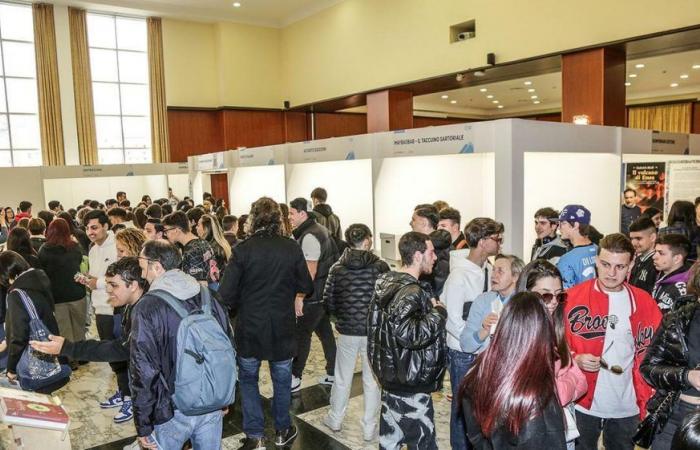In the beginning there was Argus, Ulysses’ dog capable of smelling and recognizing his master who had been absent for years, hidden inside tattered beggar’s clothes. But then many have literary transfigured the unique bond between man and dog, from Kafka to Thomas Mann to Jack London to Céline to Dickinson to Morante. Recently, they have been fueling what almost seems like a genre in itself Fabrizio Coscia with Nella notte il cane, (in the S-Confini series by ES) halfway between the diary and the personal essay, then Maurizio Braucci with Something similar to the sounds of the woods, (ed. E/O) a collection of stories constructed taking the dog’s gaze as a point of view. Now, in his latest book, Autobiography of my dogs, (Gramma-Feltrinelli, 206 pages, 18 euros) Sandra Petrignani it carries out a much more complex operation than the story of a relationship capable of connecting man with the wild part of himself. Yes, she follows the traces of the countless dogs that have accompanied her over time – Rocky, Ruggero, Guapa, Querida, Soledad, Mago, Lenin, Martino, Peter the Great, Céleste – but with this pretext she undertakes a refined literary weaving , weaving together autobiographical threads, period reconstructions, family narratives, reflections on writing and life itself.
The presentation of the book is one of the key events (at 2pm in the Urania room) of «Naples city book», the book and publishing fair scheduled from today to Sunday in the Maritime Station: Maurizio Braucci, Lorenzo Marone and Amleto De Silva the other notable guests of the first day.
Already the initial warning – “in this book everything is true and everything is false” – is the declaration of independence for a literary operation that wants to be free from genre canons and classifications. Including that very inflated definition of “hybrid” for texts constructed with a narrative-essayistic register. In short, here it is as if Petrignani, after having dedicated herself in many of her books to the existential and artistic paths of others – of Natalia Ginzburg in The Corsair, of many ladies of the pen in The Writer Lives Here – decided to allow herself two freedoms: that of finally saying of himself and that of doing so by playing with invention, almost hide and seek, with readers to be drawn into a narrative delightfully oscillating between reality and fiction. Choosing a fictional name. Electra.
Here we therefore talk about the little girl Elettra who spent the first part of her childhood at Pertite in Piacenza, about long summer days spent playing with Wendy, exactly the little friend we all had, envied for the “incomparable superiority” of her world, including Billy the dog. Carosello, the secret passages between gardens, the kisses with a lot of saliva, the childish slurs are recalled. Because the departure for writing is, must always be for Elettra-Sandra, an emotion, as she will confess to her first writer husband. And again it is told of Elettra who moved to a villa in Città Giardino on the Nomentana in the early sixties, therefore always of dogs in houses and neighborhoods of Rome in its various ages: Trastevere at the time of the student movement that enthused Elettra, the African Quarter in era of feminist uniforms with wooden clogs and flowered skirts, then Monti of his mature years with four dogs taken for a walk in a tangle of leashes.
Much space is dedicated to love, first and foremost because “having a dog means being in a constant state of love”. Thus the various animals that accompany Elettra each embody a different possibility, even if they all take on a common surname as if they were a single family: it is Bigliardino, the name of the dog of the mythical Wendy who, met as an adult, turns out to be a disappointment. Someone has a cruel fate, like the two forgotten in the car under the sun and died of heat and asphyxiation. Someone else is lucky because, like Ruggero, he has a long life. But the pain of loss is always excruciating.
In terms of love, a lot of space is dedicated to men, to Elettra’s three husbands, to the relationships experienced as a young woman, then as an adult, finally as a mature woman. And these pages of pure female Don Juanism, which recall passions experienced in freedom and with a light heart, are among the most beautiful also because they are unusual in women’s writings. Elettra’s men, however, unlike her dogs, almost never have names, except for the last one, Claudio, and for Carl, with whom she has the longest relationship because it is made up of sporadic encounters interspersed with decades of breaks where everyone lives their own life. Until he, terminally ill, shows up asking Electricity the impossible, that is, to spend his last days alongside her on some remote island. A “cracked”, Carl, as Grazia Deledda would have said and like all those who happened to Elettra. Then, go and see, they are always the best.
© ALL RIGHTS RESERVED
Read the full article at
The morning






